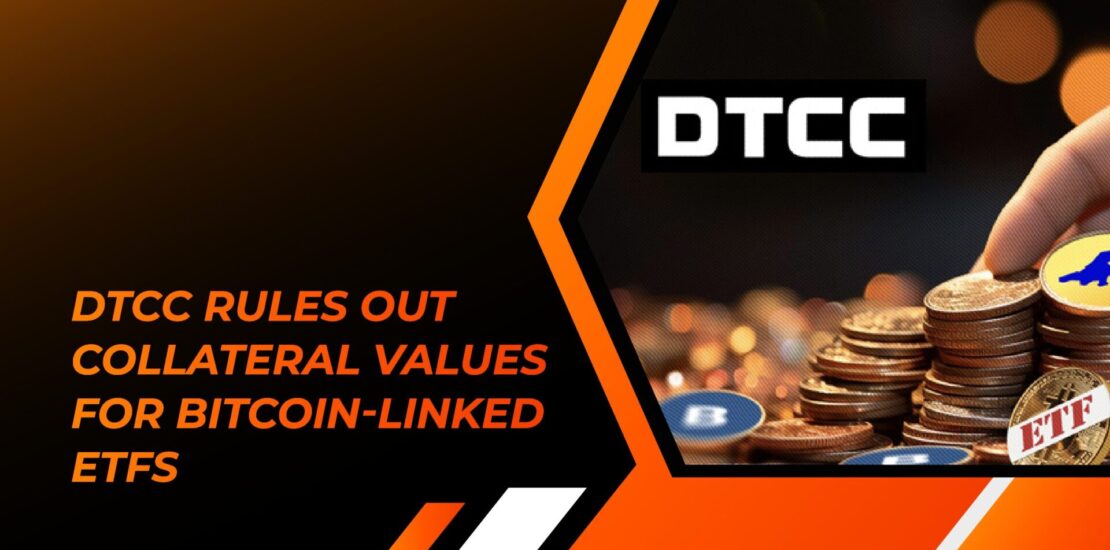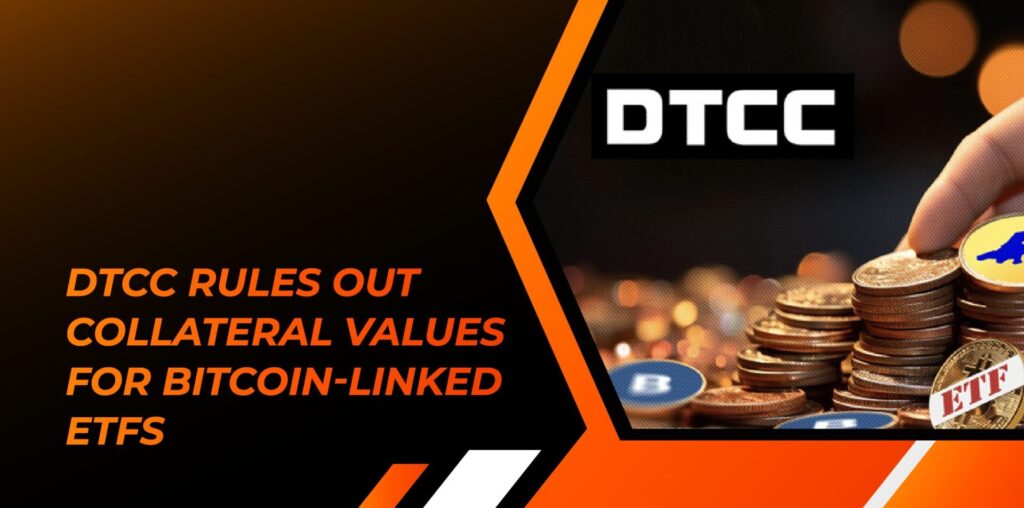- April 27, 2024
- Posted by: cryptodisplayio@gmail.com
- Category:


The Depository Trust and Clearing Corporation (DTCC) has issued a significant announcement regarding exchange-traded funds (ETFs) linked to Bitcoin or cryptocurrencies, stating that it will not assign any collateral value to these assets. This decision, revealed in a Friday announcement, will also prohibit the extension of loans against such ETFs, with the new policy set to take effect on April 30. As a key player in financial services, specializing in clearing and settlement services, the DTCC’s move signifies the complete removal of collateral value for ETFs and similar investment tools holding Bitcoin or other cryptocurrencies as underlying assets.
According to insights shared by cryptocurrency enthusiast K.O. Kryptowaluty on X, this alteration will predominantly impact inter-entity settlements within the credit system. Despite this development, individual brokers, guided by their risk appetite, may opt to continue employing cryptocurrency ETFs for lending purposes and as collateral in brokerage activities, likely without significant repercussions.
While the DTCC has adopted a firm stance against crypto ETFs, contrasting approaches have emerged among traditional financial entities. Notably, clients of Goldman Sachs have reentered the cryptocurrency market in 2024, fueled by renewed interest subsequent to the approval of spot Bitcoin ETFs. The introduction of such ETFs in the United States has catalyzed heightened institutional interest in this investment avenue. Within just three months of their launch, U.S.-based Bitcoin ETFs have amassed over $12.5 billion in assets under management, reflecting a remarkable surge in demand. In February alone, approximately 75% of new Bitcoin investments were attributed to the 10-spot Bitcoin ETFs approved on January 11.
However, recent trends indicate a slowdown in net inflows into these ETFs, with several issuers reporting notable outflows. On April 25, U.S.-spot Bitcoin ETFs witnessed a net outflow of $218 million, following a preceding $120 million outflow, as per data from Farside Investors. Grayscale’s GBTC ETF, in particular, experienced a substantial single-day outflow of $82.4197 million, contributing to a total net outflow of $17.185 billion from GBTC.
In similar developments, Morgan Stanley, a prominent financial institution, is exploring options to expand its sales of Bitcoin ETFs by empowering its approximately 15,000 brokers to actively recommend these products to customers. Presently, Morgan Stanley offers Bitcoin ETFs on an unsolicited basis, necessitating customers to independently express interest to their advisors. By facilitating advisors to actively promote these products, the firm aims to potentially widen its customer base, albeit with added liability exposure.
Some financial institutions, however, have chosen not to provide cryptocurrency products, expressing concerns about their suitability for long-term portfolios. These include Raymond James Financial and Vanguard. On a contrasting note, LPL Financial, the largest independent brokerage with over 22,000 brokers, disclosed plans in February to assess the Bitcoin funds it could offer to customers.
Meanwhile, Hong Kong prepares to launch its highly anticipated spot Bitcoin and Ethereum ETFs before the end of the month. With the Hong Kong Securities and Futures Commission (SFC) recently granting approval to several fund managers to introduce these ETFs, the city aims to position itself as a central hub for digital assets by expanding its range of cryptocurrency ETFs.



